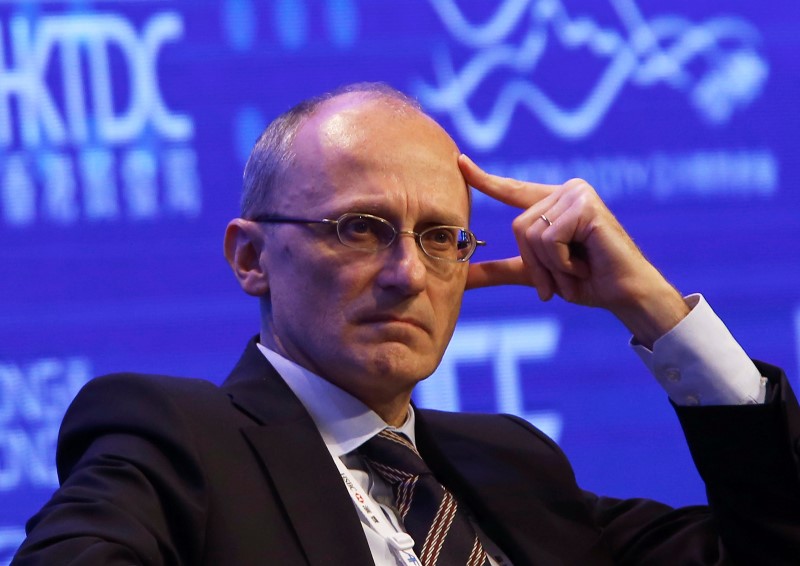By Geoffrey Smith
Investing.com -- The European Central Bank appears to have extracted itself from a little legal jeopardy by lifting its ban on bank dividends.
However, it has created such an environment around the issue that payouts will continue to be miserably thin for the foreseeable future, something that explains the relative lack of enthusiasm shown by bank Eurozone stocks as the details have dribbled out.
The Stoxx 600 Banks index was up 0.4% by mid-morning in London on Wednesday but was still down 0.7% on the week.
The ECB’s supervisory board confirmed late on Tuesday that it would allow banks to pay out up to 15% of their cumulative profits over the last two years, or an amount equivalent to 20 basis points from their core tier 1 capital ratio (the benchmark metric for financial strength), whichever is the smaller.
That’s a modest concession to the stronger players in a struggling industry who - despite the pressures of pandemic-driven loan losses, high legacy costs, ultra-low interest rates and technological change - are still meeting all their statutory requirements on capital and liquidity. Departing ECB board member Yves Mersch had admitted in an interview in November that there would be legal difficulties in trying to sustain a blanket ban beyond the end of the year. Even as it lifted the ban, it "called on" and "asked" banks to refrain from paying dividends until September, and also suggested they should go easy on bonuses for traders who - almost alone - have generated profits for the industry this year.
The move also resolves a slightly awkward inconsistency from the bank’s messaging over the last nine months. The ECB has stressed that banks went into this crisis in much better shape than in 2008, holding more capital and more able to absorb losses. The aggregate CET1 ratio at the end of the first quarter was a thoroughly respectable 14.4%.
But by imposing a panicked, blanket ban on payouts, it gave the impression of not really believing its own spin.
Chief supervisor Andrea Enria had reinforced that impression on multiple occasions, cajoling banks into recognizing potential problem loans early and writing them down accordingly. His warnings seemed to fall on deaf ears, as a third-quarter earnings season remarkable for its low provisioning was followed by a blunt warning in the ECB’s Financial Stability Review in November that banks appeared to be under-provisioning, in comparison both with banks in the U.S. and with historical precedents in Europe.
Mersch, meanwhile, pointed out that the only reason banks were able to keep provisions so low was by making use of regulatory measures such as temporary government loan guarantees and moratoria. As long as they were enjoying such state support, he argued, the case for dividends was a weak one.
The ECB’s caution is understandable. While the current economic crisis clearly started outside the banking sector, its damage could be multiplied many times over if a new crippling wave of credit losses triggers a new financial crisis. Given that the ECB is now responsible for supervising the euro zone’s largest banks, such an embarrassment could fatally undermine its credibility not just as a supervisor but also in the realm of monetary policy.
However, the use of administrative power to force banks into a policy that many businesses in the rest of the economy took freely as a matter of common sense, is a painful reminder of how little trust the authorities still have in the banks after the last financial crisis. And that is a judgment based on better access to information about banks’ books than any investor has.
